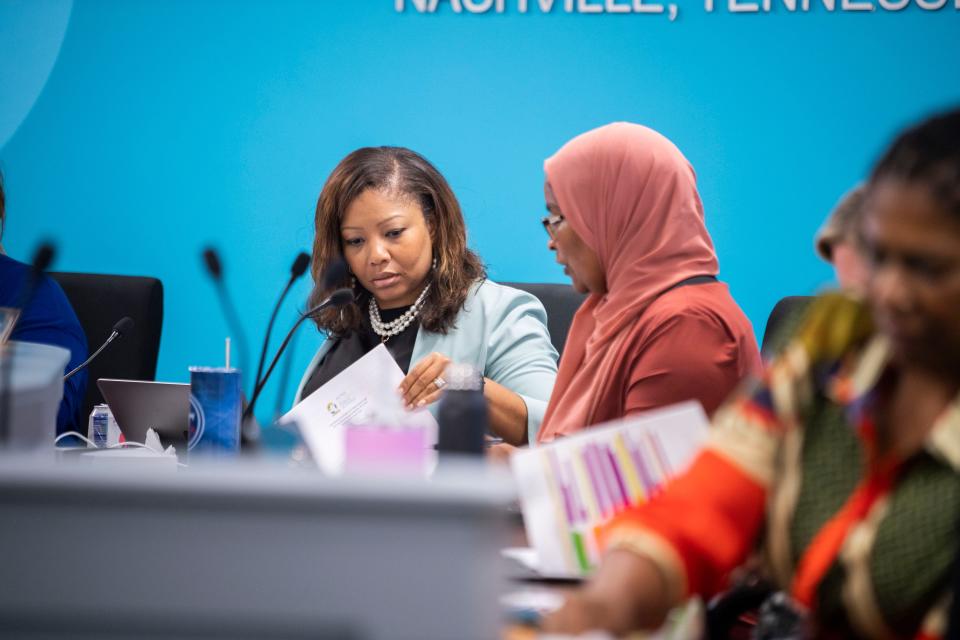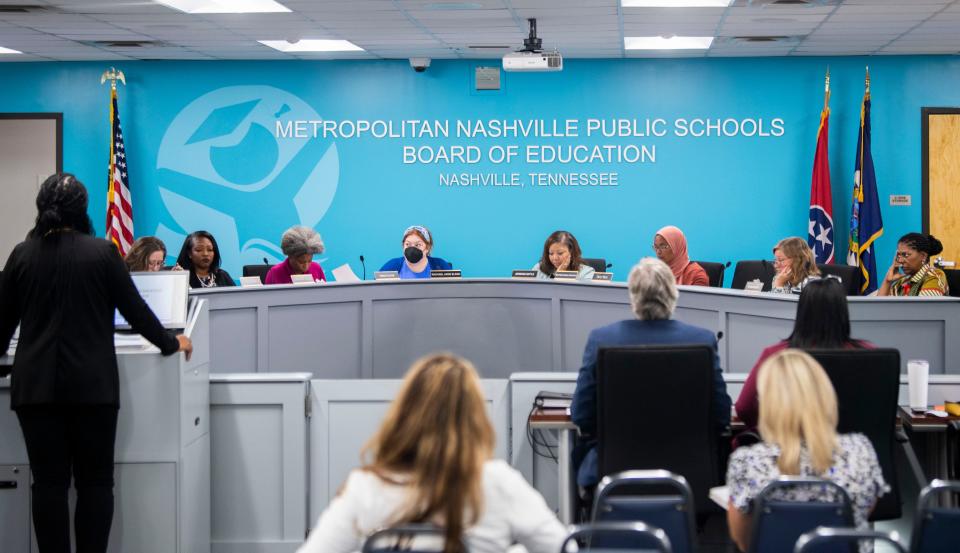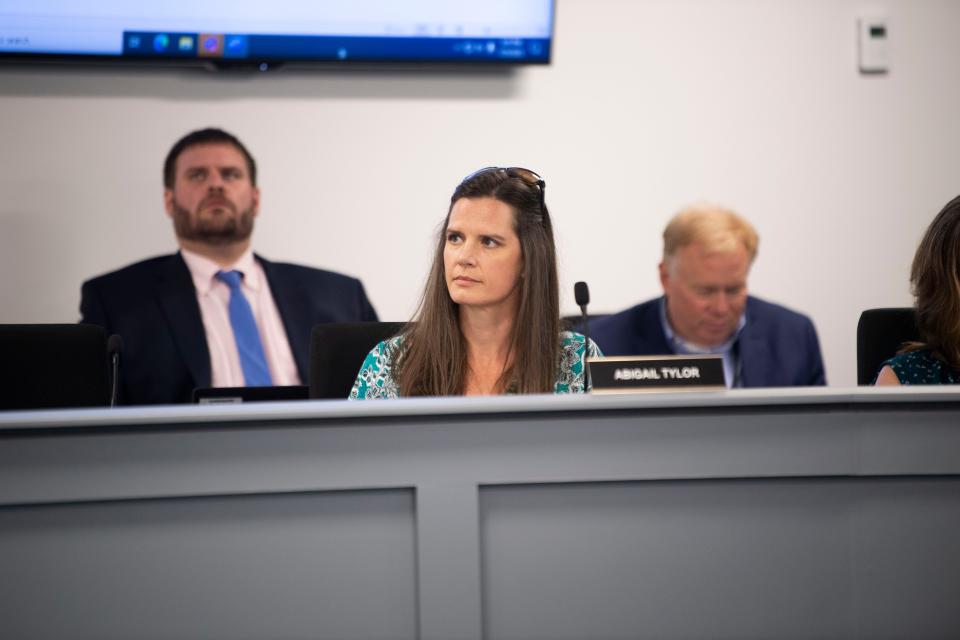Nashville schools: Leaders express frustration over Tennessee reading law
Nashville school leaders expressed their frustration and confusion this week over the wide-reaching effects of a Tennessee reading law that may hold back hundreds of fourth graders this year.
During a Metro Nashville Public Schools Board of Education meeting Tuesday night, conversation stirred around the state's controversial third-grade reading law. The law took effect last year and ultimately led to a small fraction of third graders being held back — 64 across MNPS and 898 statewide.
But the students who opted for yearlong tutoring in fourth grade to avoid retention now face another test that could result in them being held back from fifth grade. They must show adequate growth, defined by a state education department formula that involves their standardized test scores and the probability they will become proficient in reading by 10th grade.

Based on a state Department of Education projection, between 400 and 700 MNPS fourth graders could be held back this year. But beyond saying those students must be retained if they don't meet adequate growth, the law does not include any other information, including a timeline for what to expect.
Metro Schools Director Adrienne Battle repeatedly emphasized that the requirements are set out for third and fourth graders is a state law, not something imposed by the district. Battle and other school leaders have been among the chief critics of the law since its inception.
"This law was not well thought-out or executed," Battle told board members.
'Worst-case scenario': Up to 700 Nashville 4th graders may be held back under TN reading law
Support, adequate growth for fourth graders
Chief Academic Officer Mason Bellamy teamed up with Tina Stenson, who oversees the MNPS Department of Research, Assessment and Evaluation, to present the latest updates to the board on the reading law.
Stenson said the formula for adequate growth is individualized to each student. She said things remain uncertain until students take their standardized Tennessee Comprehensive Assessment Program test in April.
"Those students who are scoring the lowest need to make the most growth to be promoted," she said. "It could be one or two questions for some students, and it could be much more for others."

Bellamy said the spring and summer months will likely lead to a time crunch as spring TCAPs unfold, results come out and decisions about retention are made for fourth graders, along with the current class of third graders. Some may not know their results until well into the summer.
"That creates a timeline that is less than ideal," Bellamy said.
Metro Schools offers a summer program known as Promising Scholars. Last year, the district held registration open late to give parents and guardians of third graders more time to decide if they would enroll. Summer school was an option for some students who fell short of the state benchmark that allowed them to move on to fourth grade, if they met requirements.
In the months to come, the district will offer multiple virtual support sessions and school meetings, along with sending letters home with affected students.
Board members criticize state reading law, wrestle with details
Board member Cheryl Mayes, who represents District 6, asked if Bellamy or Stenson knew how the demographics broke down for the fourth graders enrolled in tutoring under the state law this year. Stenson said they do not have exact numbers but gave a general sense of how they fall.
"The demographics are inequitable," she said. "They do break along economic lines."

Advocates and educators have frequently expressed concern that the state reading law would disproportionately affect students of color, along with those facing economic hardship.
Board member Abigail Tylor, who represents District 9, asked if a student could score as "approaching" proficiency on the TCAP English language arts section but still be considered "on grade level" for reading.
"There really is no such thing as ‘on grade level,'" Stenson said. "What I can say certainly is you can be reading at very close to an average level in this state and still not be deemed 'meeting' or 'exceeding' what (the state calls) 'on grade level.'"
As a parent and as board chair, Rachael Anne Elrod, who represents District 2, said it was "frankly embarrassing" that she and others don't have clear answers on what will happen — and when — with this year's fourth graders. She encouraged board members to keep asking questions and discussing what's best as things unfold.
This article originally appeared on Nashville Tennessean: Tennessee reading law: Nashville schools leaders express frustration

